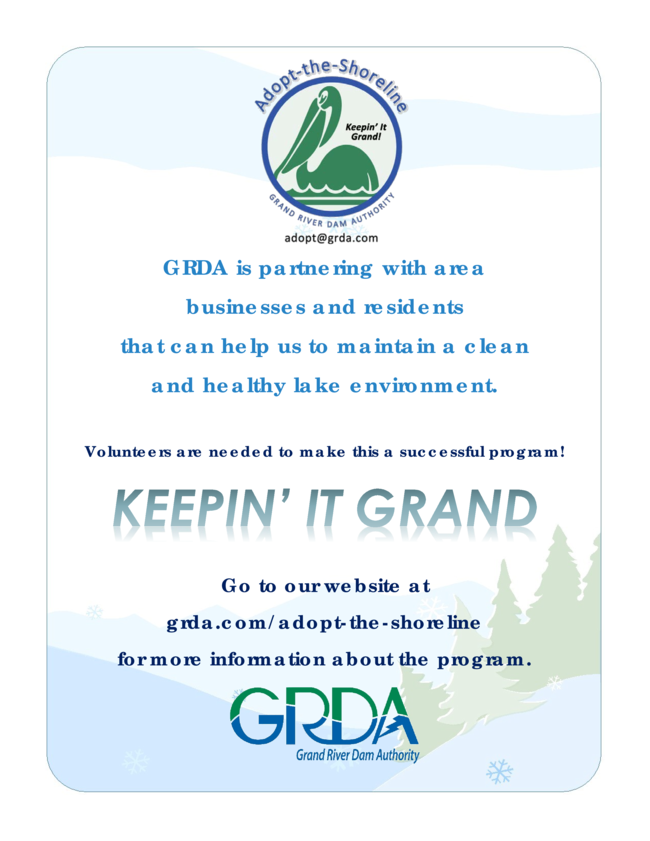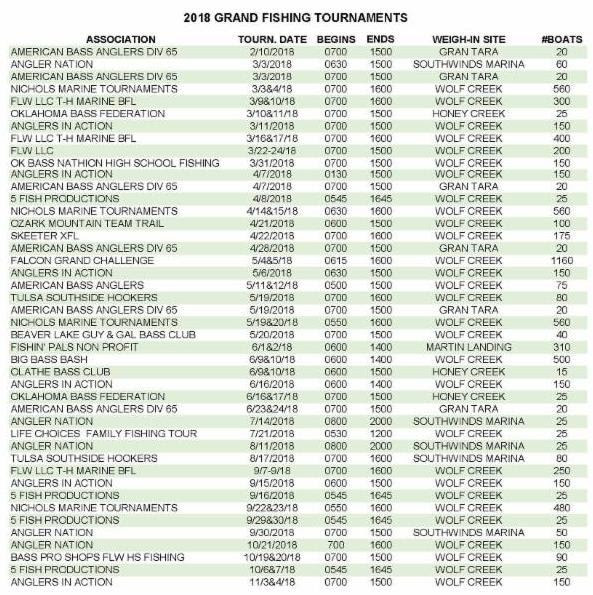GRDA Weekly Update
- Board one person at a time
- Step into the middle of the boat
- Keep weight low and centered
- Add non-skid or grip tape in strategic areas
- Keep pets like large dogs from moving about
- Assure solid footing and keep decks uncluttered
- Always sit in areas designated by the operator; never on the gunnels, bow or swim platform
- Check life lines and railing devices that keep passengers aboard for wear or weakness
- Boats over 16' in length must have a Type IV throwable safety device like a horseshoe buoy
- Stop the boat's forward progress! Every second that you move away from the COB will make it harder for you to get back to them.
- Get floatation to the person. Items such as a Lifesling will help keep the swimmer afloat and help you get them into the boat.
- Take a head count to see who fell overboard. Knowing who (or how many) fell overboard will help you plan the rescue. For instance, if the largest person on the boat fell overboard, it might take more equipment or people to bring that person back aboard. Knowing who you are going after will help you decide who needs to do what in the rescue.
- Assign roles to crew members. Such as having a lookout to keep the victim in sight, to keep people involved in the rescue.
Boater Safety Tip

Public Encouraged to Participate in FERC Scoping Meetings
2018 Boating Safety Courses Scheduled
Did You Know?
Only 13 percent of deaths occurred on boats where the operator had received boating safety instruction.
Rush for Brush Dates Announced
Mark your calendars now for the 2018 Rush for Brush program. The increasingly popular events will be held on Saturday, June 2nd at the GRDA Ecological and Education Systems in Langley and on Saturday, June 23rd at the Wolf Creek Park in Grove.
You can register for either event at http://www.grda.com/rush-for-brush-registration/
GLSPS In Top Ten in the Country
Congratulations are in order for our friends at the Grand Lake Sail and Power Squadron. The GLSPS has been selected as one of the United States Power Squadrons TOP TEN SQUADRONS in the 2017 BoatU.S. Distinguished Civic Service Award Recognition program! They were selected from over 400 Squadrons across the US, most of which come from the coastal regions which have many more members and a much larger population. This is great recognition for the GLSPS and their members that play an active role in helping to preserve the environment, safety and recreational activities at Grand Lake. We should all be very proud of what they have accomplished!
Boating Tips From the GLSPS
Adopt The Shoreline

By the Book
Do you have a Special Event Planned?
PLEASE let us know about your lake or river events so we can provide the resources you may need to make it a positive experience!
Fishing Tournament Meeting Planned for Area Anglers
- Fish handling in a boat
- Fish handling at tournament weigh-ins
- Proper ways to Fizz a Fish
2018 Fishing Tournaments
